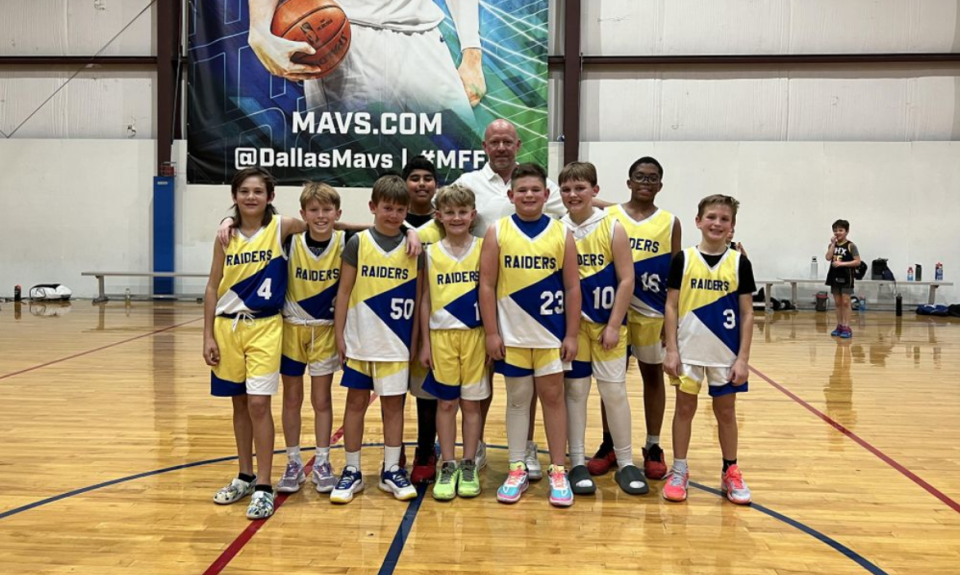What helps a hesitant young athlete grow into a confident leader? Team sports offer more than just physical activity—they create a space where kids build self-worth, learn discipline, and connect with something bigger than themselves.

Through shared goals, teamwork, and healthy competition, young athletes gain confidence that lasts well beyond the scoreboard. Wins, losses, and every moment in between teach them how to lead, support others, and stay focused under pressure.
Team sports don’t just build skills for the game—they build skills for life. From celebrating victories to learning from setbacks, kids develop resilience, mental strength, and a sense of belonging that shapes their future.
1 – Elevating Confidence in Young Athletes
Team sports lay a robust foundation for confidence in young athletes. Players gain skills that foster leadership, self-worth, and independence through competition and collaboration.
This confidence isn’t just about wins or stats—it’s about consistent effort, reaching goals, and being part of something greater than oneself. Whether pushing through practice drills or hitting milestones, youth learn to trust their abilities.
Wearing custom volleyball jerseys that reflect team identity can also boost this confidence. Team uniforms symbolize unity, pride, and commitment—essential for young athletes learning to value their role on the team.
These visual reminders of belonging can strengthen how kids see themselves in school, sports, and social spaces.
Team sports specifically boost confidence in young athletes through several key mechanisms:
Skill Mastery and Competence
As children practice and improve their sports skills, they gain a sense of accomplishment and competence. This mastery builds a positive self-image and reinforces their belief in their abilities.
Teamwork and Social Belonging
Being part of a team fosters a sense of belonging and social integration. Positive interactions with teammates and coaches and shared goals help young athletes feel valued and supported, enhancing self-esteem.
Overcoming Challenges and Resilience
Sports present opportunities to face and overcome setbacks, teaching kids perseverance and emotional control. Successfully navigating these challenges strengthens their confidence and mental toughness.
“When people play off each other’s skills and knowledge, they can create solutions that are practical and useful.”
Positive Reinforcement and Encouragement
Coaches and parents who praise effort rather than just outcomes help children develop a growth mindset. Recognizing hard work and progress builds internal confidence that is not solely dependent on winning.
Goal Setting and Incremental Success
Setting achievable goals and experiencing small successes boosts motivation and confidence. Gradually increasing challenges help young athletes build self-belief through consistent accomplishments.
Mental Strategies
Techniques like positive self-talk and mental imagery before competitions help young athletes prepare mentally, reinforcing confidence and reducing anxiety.
When young athletes see progress on the court or during a tough practice, they gain more than physical ability. They develop emotional strength, identity, and confidence that can follow them into adulthood.
2 – Enhancing Communication Skills
Effective communication is essential for leadership, and team sports create an ideal environment for kids to develop these skills.
Whether on the court or in the huddle, young athletes improve their listening, speaking, and responding to others in real time. These interactions build habits that extend far beyond the game.
Here are five valuable communication lessons kids gain through team sports:
Clear Verbal and Nonverbal Expression
Players learn to give directions, share strategies with teammates, and call out plays under pressure.
Here’s how kids build verbal skills through team sports:
| Skill | What Kids Learn | Why It Matters |
| Clear Expression | Use spoken language to give instructions, share ideas, and provide feedback | Builds clarity, leadership, and teamwork in high-pressure situations |
| Strategic Discussion | Talk through plays, tactics, and post-game reflections with coaches and teammates | Encourages critical thinking, self-reflection, and communication for improvement |
| Instruction & Motivation | Follow directions from coaches and motivate peers through verbal encouragement | Enhances listening, leadership, and the ability to energize and direct a group |
| Vocabulary Expansion | Learn sport-specific terms and use them in context | Develops confidence in language use and improves expressive communication skills |
Beyond spoken words, young athletes learn to understand and respond to subtle non-verbal cues—an essential part of communication on and off the field.
| Skill | What Kids Learn | Why It Matters |
| Body Language and Cues | Read gestures, posture, and facial expressions to understand teammates and coordinate plays | Helps them anticipate actions and communicate quickly without words |
| Understanding Social Dynamics | Adjust communication style based on the audience—teammates, coaches, captains—using non-verbal cues | Teaches social awareness, group roles, and respectful interactions across settings |
| Implicit Understanding | Recognize patterns and respond instinctively during fast gameplay using non-verbal communication | Strengthens teamwork, reactivity, and collaboration in high-speed environments |
Listening and Expressive Language Skills
Sports teach kids to listen closely to coaches and team cues. They also improve their ability to express emotions like frustration or motivation, which builds empathy and emotional language skills.
Audience Awareness and Social Adaptation
Children gain experience adjusting how they speak depending on who they’re addressing—a teammate, a coach, or a captain. This helps them understand different social roles and improves their ability to navigate group dynamics.
Collaborative Problem-Solving
Working toward shared goals shows kids how to use communication to resolve conflicts, make decisions as a team, and compromise when needed—all essential for leadership and group collaboration.
Confidence in Speaking Up
Being part of a supportive team makes it easier for shy or hesitant kids to find their voice. As they practice speaking up in games and team meetings, they build both self-confidence and communication skills that apply in school and life.
Team sports give children daily, real-world practice using their voices, responding under pressure, working together, and adapting their style based on the setting.
These moments prepare them for clear, confident communication everywhere—in the classroom, at home, and later in the workplace.
3 – Fostering Accountability and Leadership

Team sports teach young athletes that their actions don’t just affect their outcomes—they impact the entire team. This awareness encourages responsibility, discipline, and the confidence to lead.
As players earn trust, they start taking ownership of their roles and learning to positively influence team dynamics.
Leadership begins in real moments—making a quick decision under pressure or staying calm after a mistake. These day-to-day experiences add up, giving kids the tools to lead with integrity and purpose.
Here are a few ways team sports help develop leadership and accountability:
- Making quick, confident decisions during high-stress situations
- Owning mistakes and working to make things right
- Staying dependable and supportive during challenging moments
- Leading through consistent effort, focus, and actions
- Building strategy and vision through in-game challenges
These lessons go beyond the game. Kids who learn to lead on the court bring that mindset into school, friendships, and future work settings.
Sports provide a structure where leadership traits—like discipline, empathy, and commitment—are practiced early and often.
With every game and practice, young athletes build the foundation for leadership rooted in teamwork, responsibility, and service to others. These skills prepare them to step into roles where confident guidance and transparent decision-making are essential for success.
Empowering Future Leaders
Team sports serve as powerful catalysts for building confidence, transforming young athletes into resilient and capable individuals through the unique combination of physical challenges, social interaction, and personal achievement.
The journey through team sports equips athletes with invaluable life skills, from enhanced communication abilities to stronger mental resilience, creating a foundation far beyond the playing field.
Through consistent engagement in team activities, players develop an unshakeable sense of self-worth and capability that propels them toward success in all aspects of life. Team sports are a pathway to athletic achievement and a transformative experience that shapes future leaders.
comments +